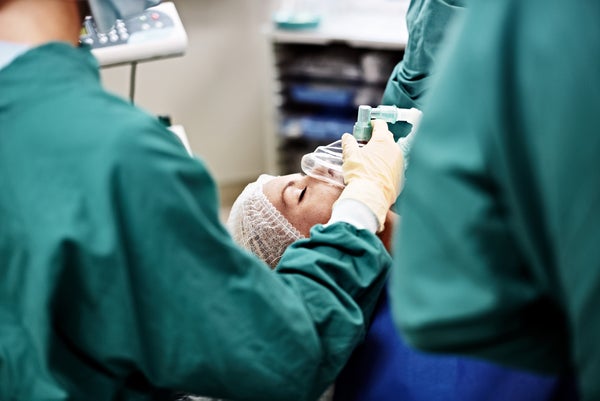Men May Succumb to Anesthesia More Easily than Women
Findings in animals and humans emphasize the perils of not including female participants in research on the effects of anesthesia
kupicoo/Getty Images
In 1846 William G. Morton, a young Boston-based dentist, showed that inhaling ether in a proper dose can make a person insensible to pain without affecting their vital physiologic functions. This first successful public demonstration of modern anesthesia revolutionized the field of medicine.
Today general anesthetic drugs enable doctors to perform more than 300 million surgeries each year. Increasing evidence has shown that these drugs induce loss of consciousness in part by acting on the hypothalamus, the part of the brain that controls the body’s sleep-wake cycle. Yet the exact mechanism by which these drugs work in the brain remains poorly understood.
Highlighting these fundamental gaps in knowledge, a group of researchers recently discovered why male and female mice respond differently to general anesthesia. The study, published in Proceedings of the National Academy of Sciences USA, shows that testosterone modulates susceptibility to volatile general anesthetics that are administered through inhalation, rendering males more sensitive to the effect of general anesthesia than females. This finding adds to the growing body of literature backing the need to include both sexes in biological research.
On supporting science journalism
If you’re enjoying this article, consider supporting our award-winning journalism by subscribing. By purchasing a subscription you are helping to ensure the future of impactful stories about the discoveries and ideas shaping our world today.
Finding sex differences in the response to anesthetics was “an accident,” says study author Alex Proekt, an associate professor of anesthesiology and critical care at the University of Pennsylvania. The researchers were studying fluctuations in the brain activity of mice…
Read the full article here







